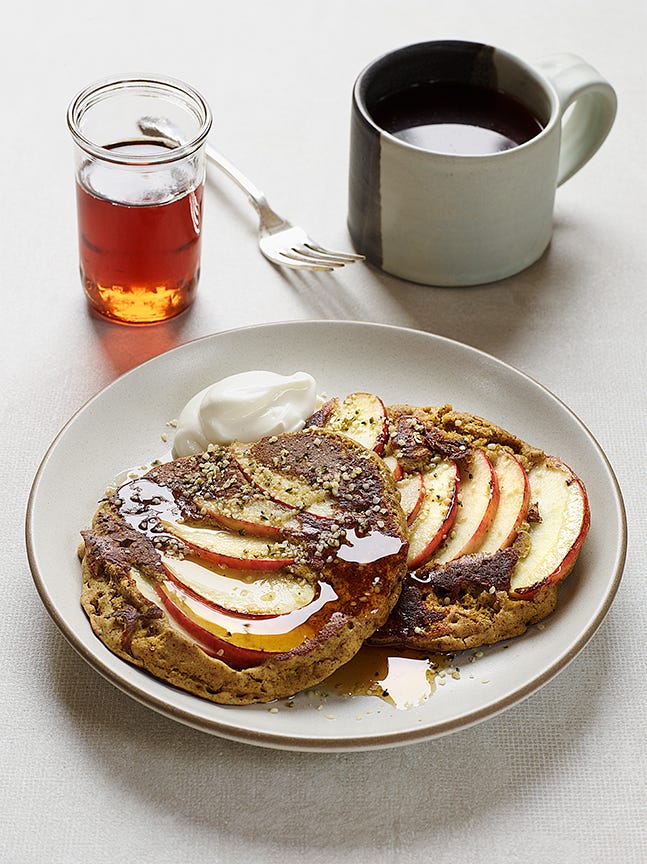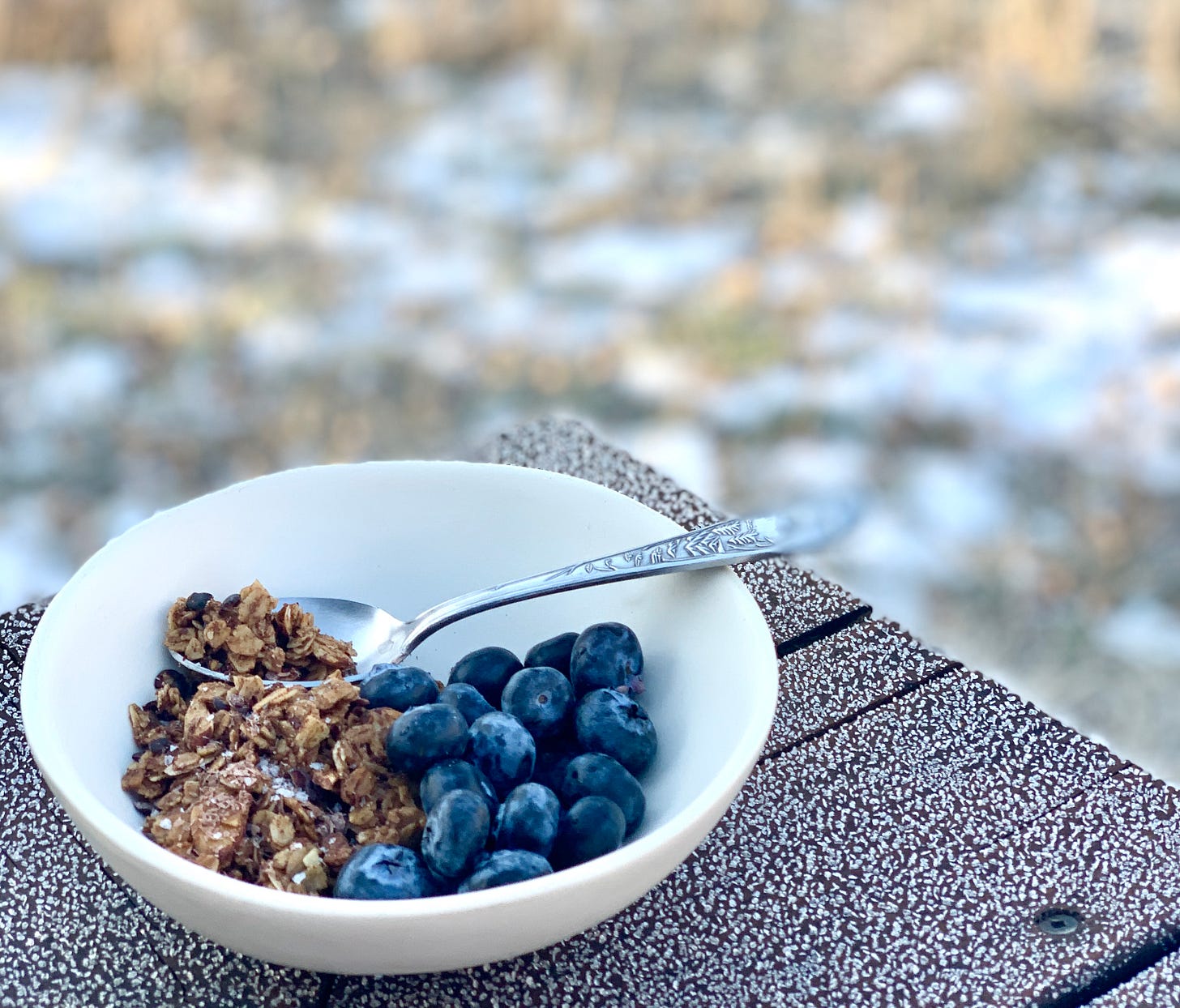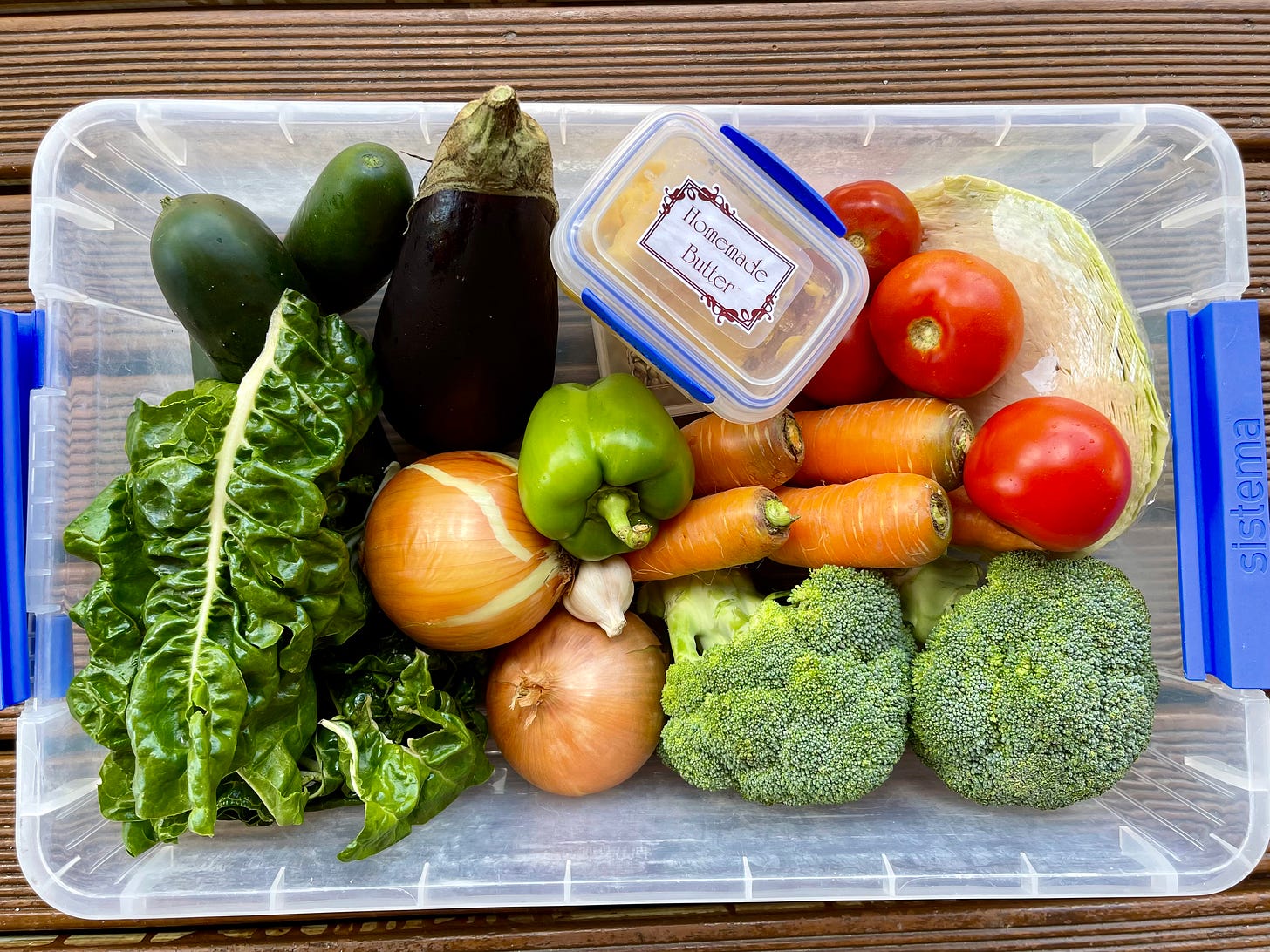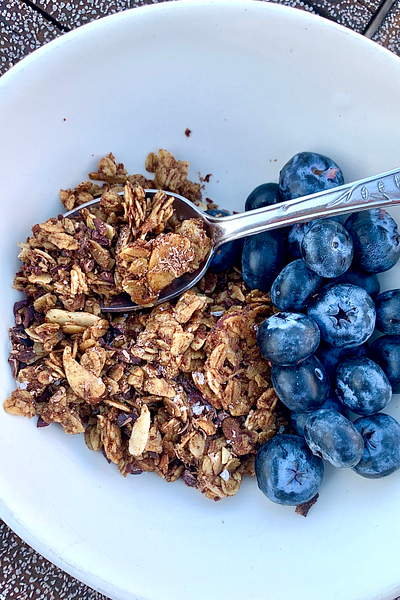Hello, everyone. I am writing to you from New Zealand, where I am traveling around the South Island with my husband. It’s the middle of summer so we have been hiking, biking, fishing, and gawking at the gorgeous scenery. This week we are staying on a farm. Each day the farmer’s wife brings us a box of vegetables—broccoli, lettuces, carrots, eggplant, peppers, cucumbers, and chard—along with the sweetest cherries and apricots, homemade bread and butter, cheese, peanut butter, and local honey. I’m not going to lie—I am definitely eating more cheese and butter than I do at home. (If you’re new here, learn more about why brain-healthy diets limit cheese and butter.) It is made right here on the farm and it is amazing! I’ll be back home to Deep Winter soon, so I am enjoying every moment.
Today we are talking about one of the most misunderstood food groups: whole grains. Grains are confusing! You may read that grains incite inflammation in the brain by breaking down the blood brain barrier. Or, that the gluten in certain grains should be avoided to protect your cognitive health. You may have seen the oft-cited notion that eating grains makes the gut “leaky,” causing bloating and abdominal pain. It’s no wonder that grains—which are often thought to be synonymous with “carbs”—are often the first thing people give up when trying to eat more healthfully.
Science paints a distinctly different whole grain picture than popular culture. You probably know that the MIND diet recommends eating 3 servings of whole grains a day to fend off Alzheimer’s. At first glance, that seems like a lot! As it turns out, this is the daily “dose” of whole grain foods found in studies to have an impact on reducing dementia risk, which it does in a roundabout way by reducing brain-harming heart disease, diabetes, obesity. Before we get into the science, here are the top takeaways about why whole grains are actually GOOD for the brain.
Why whole grains are good for the brain
Diets that include whole grains—unrefined foods made from oats, wheat, barley, rice, and corn—are a boon for brain health because they are:
Heart healthy: Fiber in whole grains help lower cholesterol (LDL-C) which reduces the risk of heart attack and stroke. A healthy cardiovascular system, in turn, helps cultivate a healthy brain by providing more blood flow through vessels not obstructed by plaque.
Gut healthy: The fiber in whole grains—both soluble and insoluble—feeds the trillions of microbiota who reside in the intestinal tract to help cultivate a thriving gut microbiome, which in turn gives the brain a steady supply of neurotransmitters and bioactive substances.
Rich in flavonoids and other polyphenols: These brain-boosting nutrients from plants are common in colorful foods like berries and leafy greens, but you also get them from whole grains like quinoa, wheat, rye, brown rice, and corn.
Anti-inflammatory: Grains in general may have a reputation of being “inflammatory,” but in fact whole grains have been shown to reduce inflammatory factors (such as homocysteine and c-reactive protein) in numerous studies, like this meta-analysis from Australia.
Blood sugar friendly: Fiber in whole grains helps glucose get absorbed more slowly in the bloodstream after a meal, creating a more stable blood sugar environment. This helps keep the body metabolically healthy with a lower tendency to develop type 2 diabetes, insulin resistance, and other harmful syndromes.
If you recall the Four F’s of Brain Healthy Foods—brain-friendly fats, fiber, flavonoids, and fit—whole grains check off at least 3 out of 4 factors. So even though grains are often vilified as an unhealthy, “inflammatory” food, this can only be said about highly refined grains—those that have been processed (crushed, milled, chafed) to remove the nutrient-dense brain (outer coating) and germ (core).
Looking at whole grain intake through clinical trials

Several rigorous nutrition clinical trials support whole grains as a brain-protective food. Here are a few that stand out:
Rush Biracial Study of Whole Grains and Cognitive Decline: This study singled out the impact of eating whole grains on dementia risk in a large group of people over 10 years. It is unique in that it included a large proportion of African Americans—60% of participants were Black. Eating more servings of whole grains was an especially powerful factor to slow brain aging in the African American group. In fact, those in the highest category of whole grain consumption had brains that performed 8.5 years younger.
In this study, one serving of whole grains = 1 piece whole grain bread or ½ cup cooked oats, non-white rice, barley, farro, quinoa, pasta, or popcorn. Yes, popcorn was shown to be beneficial in helping reduce dementia risk.
Framingham Offspring Study: This study followed 2,958 people for about 13 years who kept track of their daily whole grain intake and cognitive health. Whole grains were defined as oatmeal, brown rice, 100% whole-wheat bread and whole-grain cereals. People who consumed 2 servings of whole grains a day had 34% lower risk of dementia and 40% lower risk of Alzheimer’s.
Whole grain intake reduces type 2 diabetes: This study looks at the evidence that consuming whole grains can reduce the risk of type 2 diabetes. Developing this adult onset type of diabetes is known to double the risk of Alzheimer’s.
Whole grain intake reduces the risk of coronary heart disease: This study looked at the Nurses’ Health Study participants through the lens of their whole grain intake—did it have an impact of developing heart disease? Across the board, all participants who consumed more whole grains were less likely to suffer from a heart attack or stroke, both of which are associated with Alzheimer’s and vascular dementia.
Whole grain intake reduces the risk of dying from all causes: This is an ambitious analysis of 45 studies pertaining to whole grain intake and health. The result: including 3 servings of whole grains in the diet each day was associated with a reduced risk of dying from cardiovascular diseases and cancer.
What about gluten?

Of all the grain confusion out there, misconceptions about gluten and the brain are most common. That’s probably because certain grains can be inflammatory to some people. Gluten is a family of proteins found in wheat, barley, and rye. These grains can cause problems in those who are allergic or sensitive (4% of the population) or have celiac disease (another 1%). If you don’t have one of these conditions, there is no brain health reason to avoid gluten. (And most gastroenterologists don’t recommend avoiding it for gut health either.)
But, if most of the grains you consume are from ultra-processed foods that happen to contain gluten (processed white bread, commercial pizza, cake, cookies, crackers, flour tortillas, bagels, English muffins, to name a few), your health does improve tremendously once you limit or avoid these foods. (This is true with ultra-processed gluten-free foods, too.)
If you are concerned about consuming gluten because you’ve read it may be linked to cognitive decline even if you don’t have celiac, this study of more than 13,000 midlife women without celiac disease is reassuring. Consuming gluten-rich foods was not associated with a higher risk of cognitive decline.
If you are sensitive to gluten, however, you can still enjoy a long list of whole grains and get the same brain health benefits they provide: amaranth, buckwheat, corn, millet, oats, quinoa, and whole-grain rice: brown, red, purple, black and wild rice.
The Takeaway
Whole grains are a brain-protective food group.
The recommendation for eating 3 servings of whole grains a day is based on basic science and clinical data.
RECIPE: DARK CHOCOLATE GRANOLA WITH CACAO NIBS
Here’s a granola for chocolate lovers that includes the goodness of whole grain oats and 3 types of flavanol-rich chocolate. We did a deep dive into buying the most nutrient-dense chocolate products (that are also free of heavy metals) here.
Brain Health Retreats in Italy: 2024
For a full list of my Brain Health Retreats in Italy curated by
in 2024, see this post that went out to all BHK subscribers. I’ll be announcing soon on Instagram so let me know if you want to reserve a spot! I can’t wait to be back in Italy and would love to have you join me.That’s all for today. I’ll be back next week with our first Open Thread of 2024. Until then, thank you for reading, sharing, and taking the best care of your brains!
Love,
Annie








Your vacation sounds wonderful! So does the produce and homemade products provided by the farmer's wife. I'm envious, as we are stuck here in the frozen cold of winter.
Thank you for all the information on whole grains. I am surprised at the number of studies that have been done. There seems to be little publicity or reporting by the news media to share the results of these studies. Thanks for keeping us informed!
Is there a support team I can contact? I’m being charged $7 for something and I don’t even know what it is?